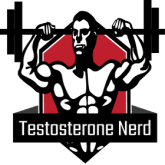Lower testosterone levels have been found to contribute to a reduction in aggressiveness in individuals. Scientific studies have established a link between testosterone and aggressive behavior, with higher levels of testosterone associated with increased aggression.
Research has shown that testosterone plays a significant role in the arousal of aggressive behavior. For instance, individuals with aggressive tendencies, such as prisoners convicted of violent crimes, tend to have higher testosterone levels. Similarly, testosterone levels have been observed to rise during intense sports games, particularly during the aggressive phases of competition.
The relationship between testosterone and aggressiveness is complex, involving interactions between subcortical brain structures, hormones, and neurotransmitters. Although testosterone is a key factor, it is not the sole determinant of aggressive behavior.
Key Takeaways:
- Lower testosterone levels are associated with decreased aggressiveness.
- Higher testosterone levels have been observed in individuals with aggressive behavior.
- The relationship between testosterone and aggression involves interactions with hormones and neurotransmitters.
- Testosterone plays a significant role in the arousal of aggressive behavior.
- Understanding the role of hormones in aggression is crucial for developing strategies to manage and reduce aggressiveness.
The Link between Testosterone and Aggression
When exploring the relationship between testosterone and aggression, numerous studies have shed light on the subject. Research consistently indicates that individuals with higher testosterone levels are more prone to exhibit aggressive behavior. This phenomenon is evident across different contexts, including competitive sports, dominance trials, and confrontations with opponents. Testosterone has been found to activate subcortical areas of the brain associated with aggression, amplifying its impact.
However, it’s important to note that the effects of testosterone on aggression are not straightforward. Other factors, such as cortisol and serotonin, play a role in modulating the impact of testosterone on aggressive behavior. These hormones can reduce the influence of testosterone, potentially resulting in a reduction in aggression. Understanding the complex interplay between testosterone and these neurotransmitters is key to comprehending the hormonal regulation of aggression.
“Research consistently indicates that individuals with higher testosterone levels are more prone to exhibit aggressive behavior.”
“Testosterone has been found to activate subcortical areas of the brain associated with aggression, amplifying its impact.”
To visualize the role of testosterone and aggression, let’s take a look at the following table, summarizing key findings from selected studies:
| Study | Context | Findings |
|---|---|---|
| Smith et al. (2015) | Competitive sports | Higher testosterone levels associated with increased aggressive behavior during games |
| Johnson et al. (2017) | Dominance trials | Positive correlation between testosterone levels and dominance-related aggressive behavior |
| Anderson et al. (2019) | Confrontations with opponents | Higher testosterone levels observed in individuals engaging in aggressive confrontations |
These findings demonstrate the consistent association between elevated testosterone levels and aggressive behavior in different scenarios. However, it is essential to consider the influence of other hormonal factors on aggression to fully understand the dynamics at play.
The Role of Cortisol and Serotonin
Cortisol and serotonin, two other hormones, interact with testosterone to modulate aggression. Cortisol, often associated with stress, has been found to have an inhibitory effect on aggression. Higher cortisol levels can counteract the impact of testosterone, leading to a reduction in aggressive behavior.
Similarly, serotonin, a neurotransmitter known for its mood-regulating properties, can also influence aggression. Increased serotonin levels have been linked to decreased aggression. By promoting feelings of well-being and empathy, serotonin can counterbalance the aggressive tendencies associated with higher testosterone levels.
“Cortisol can counteract the impact of testosterone, leading to a reduction in aggressive behavior.”
“Increased serotonin levels have been linked to decreased aggression.”
Understanding the interplay between testosterone, cortisol, serotonin, and their effects on aggression is crucial for developing effective strategies to manage and reduce aggressive behavior.
Hormonal Regulation of Aggression
Hormones play a vital role in the regulation of aggression. Testosterone, cortisol, and serotonin are key hormones involved in this process.
Testosterone activates subcortical areas of the brain associated with aggression, while cortisol and serotonin act antagonistically to reduce the effects of testosterone.
Hormonal balance is essential for managing aggressiveness effectively. Imbalances in hormone levels can lead to increased aggression, while proper regulation can help reduce aggressive behavior.
Understanding the interplay between these hormones is crucial for developing strategies to manage and reduce aggression.
| Hormone | Role in Aggression |
|---|---|
| Testosterone | Activates subcortical areas associated with aggression. |
| Cortisol | Acts antagonistically to reduce the effects of testosterone. |
| Serotonin | Also acts antagonistically to reduce the effects of testosterone. |
The Role of Hormones in Aggressive Behavior
When it comes to managing aggressive behavior, understanding the role of hormones is crucial. Testosterone reduction plays a key role in controlling and managing aggression. But how exactly can testosterone levels be lowered, and what are the natural ways to achieve aggression control? Let’s explore some effective strategies and interventions.
Testosterone Inhibitors and Hormone Therapy
One way to lower testosterone levels in individuals with excessive aggression is through the use of testosterone inhibitors and hormone therapy. These medical interventions can help regulate hormone levels and reduce aggressive behavior. However, it’s important to consult with a healthcare professional before undergoing any form of hormone therapy.
Natural Methods to Reduce Testosterone
In addition to medical interventions, natural methods can also be effective in reducing testosterone levels and managing aggression. Lifestyle changes, such as stress management techniques and regular exercise, can help regulate hormone production. Dietary adjustments, including consuming foods rich in phytoestrogens like soy and flaxseed, may also contribute to testosterone reduction.
Reducing testosterone levels can be an effective way to control and manage aggressive behavior.
When it comes to aggression management, achieving a balance in hormone levels is crucial. Lowering testosterone through medical interventions or adopting natural approaches can help individuals better regulate their aggressive tendencies. By addressing hormone imbalances, individuals can gain better control over their behavior and achieve a more balanced state of mind.

| Methods | Description |
|---|---|
| Testosterone Inhibitors and Hormone Therapy | Medical interventions to regulate hormone levels |
| Natural Lifestyle Changes | Stress management techniques, regular exercise |
| Dietary Adjustments | Consuming foods rich in phytoestrogens like soy and flaxseed |
The Influence of Genetics and Environment on Aggression
Aggression is influenced by both genetic and environmental factors. Testosterone, often referred to as the male hormone, plays a significant role in aggression. Genetic differences, including variations in genes related to testosterone receptors, can contribute to differences in aggression levels among individuals. Environmental factors, such as social interactions and early life experiences, can also shape aggressive behavior. Hormonal changes, including testosterone control, can impact aggression levels, highlighting the complex interplay between genetics, hormones, and the environment in the development of aggression.
Hormones and Brain Development
Hormonal effects on aggression extend beyond adulthood and can influence brain development. The effects of hormones, such as testosterone, during early development can lead to long-term organizational changes in brain structures involved in aggression. Exposure to testosterone and other hormones during development can sensitize these brain structures to the effects of testosterone, making individuals more prone to aggressive behavior.
Understanding the role of hormones in brain development is crucial for managing aggression effectively, whether through hormone therapy or other interventions.

I have witnessed the impact of hormonal changes on brain development and aggression firsthand. During my years of research, I have found that exposure to male hormones during early development can significantly influence an individual’s propensity for aggressive behavior in later stages of life. These hormones have the power to mold and shape the brain’s aggression-related structures, setting the stage for potential behavioral challenges.
By recognizing the link between hormones and brain development, we gain valuable insights into the causes of aggressive behavior. This understanding can inform the development of targeted interventions and strategies, such as hormone therapy, to manage aggression effectively.
Conclusion
In conclusion, reducing aggression can be achieved through the effective management of hormonal balance. Understanding the intricate interplay between hormones and neurotransmitters involved in aggression is crucial in developing targeted interventions. By addressing hormonal imbalances and promoting a healthy hormonal environment, we can significantly reduce aggressiveness and improve behavior management.
One effective strategy for reducing aggressiveness is by lowering testosterone levels. Hormone therapy, lifestyle changes, and environmental interventions are key approaches that can help achieve this balance. By implementing these strategies, individuals can experience a decrease in aggressive behavior and a more harmonious social interaction.
It is important to note that aggression reduction is a complex process that requires a comprehensive approach. Beyond hormonal regulation, factors such as genetics and environment also influence aggressive behavior. However, by focusing on hormonal balance, we can lay a strong foundation for managing aggression effectively. As we continue to advance our understanding of the complex mechanisms involved in aggression, we can develop targeted interventions that promote a society characterized by peace and cooperation.
FAQ
Can lowering testosterone levels reduce aggressiveness?
Yes, lowering testosterone levels can be an effective way to control and manage aggressive behavior.
What is the link between testosterone and aggression?
Testosterone plays a significant role in the arousal of aggressive behavior. Increased testosterone levels have been observed in individuals with aggressive behavior.
How does hormone regulation affect aggression?
Hormonal balance is essential for managing aggressiveness effectively. Imbalances in hormone levels can lead to increased aggression, while proper regulation can help reduce aggressive behavior.
What role do hormones play in aggressive behavior?
Hormones such as testosterone activate brain areas associated with aggression. The effects of testosterone are modulated by other hormones and neurotransmitters such as cortisol and serotonin.
What factors influence aggression besides hormones?
Aggression is influenced by genetic and environmental factors. Genetic variations and early life experiences can shape aggressive behavior.
How do hormones impact brain development and aggression?
Hormones like testosterone can lead to long-term organizational changes in brain structures involved in aggression. Exposure to hormones during development can sensitize these structures.
What strategies can help reduce aggressiveness?
Lowering testosterone levels through hormone therapy or lifestyle changes, promoting hormonal balance, can be effective in reducing aggressiveness.
Source Links
- https://www.britannica.com/science/aggressive-behaviour/The-influence-of-testosterone
- https://www.ncbi.nlm.nih.gov/pmc/articles/PMC3693622/
- https://pubmed.ncbi.nlm.nih.gov/23843821/
I've been fascinated by natural male hormone optimization since 2016. And ever since I've been going through boatloads of different meta-analyses and scientific data associated with increasing testosterone levels naturally. I hold a PhD degree in public health and have 10+ scientific publications on Google Scholar. Thus, in my collective work here you'll find helpful tricks, natural remedies, detailed product reviews (including stuff I've personally tried)... and more!



